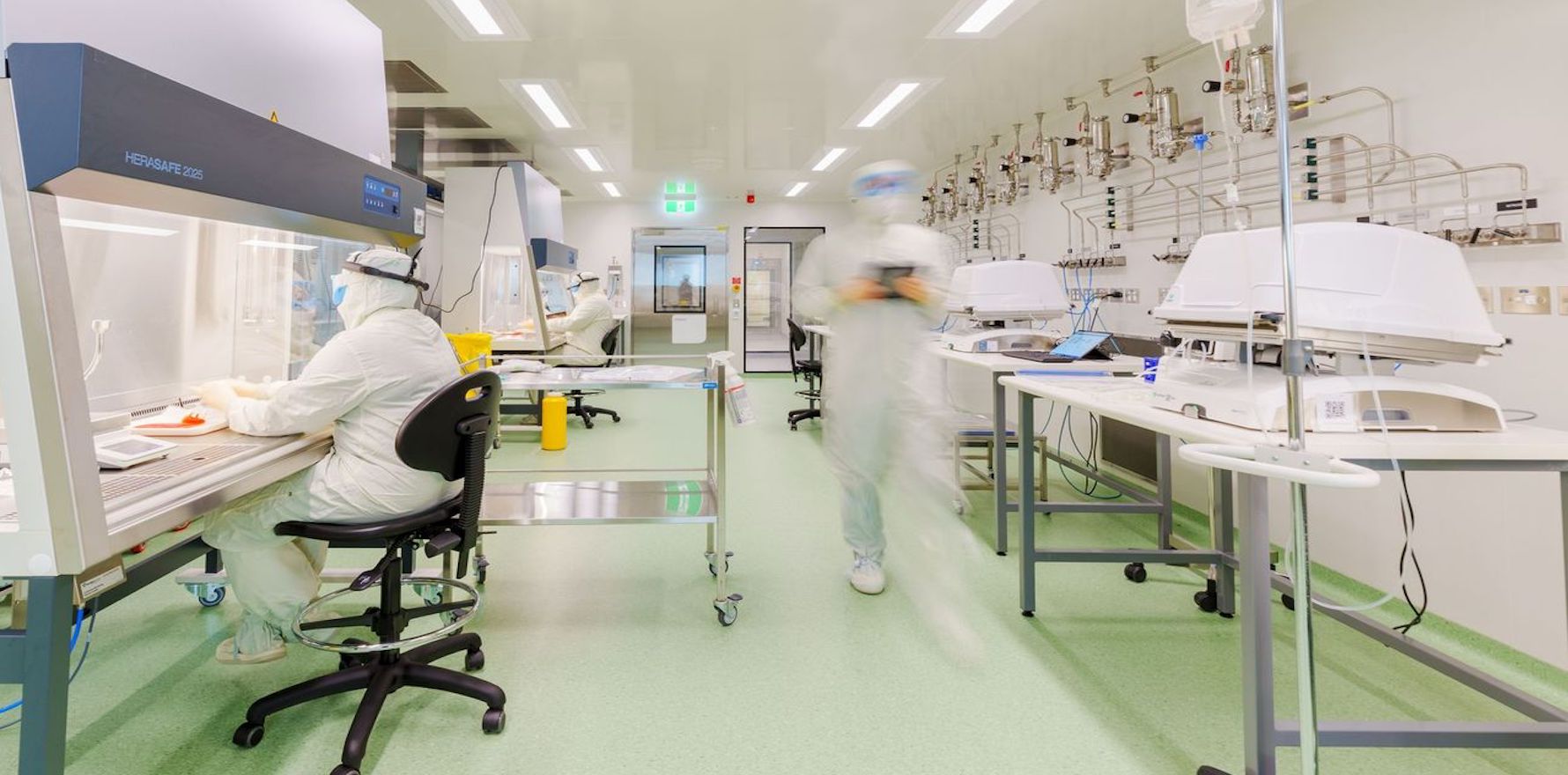Peter Mac’s expanded biomedical manufacturing facility is good news for blood cancer patients and, soon, those with solid tumours.
Peter Mac has opened its expanded cell and gene therapy manufacturing facility in Melbourne, boosting Australia’s CAR T-cell manufacturing capacity by 400 per cent.
“The expanded manufacturing site has the necessary scale to provide CAR T-cell and other emerging cellular therapies to a growing number of patients in Australia and our region, and to support the rapid advances in related clinical and discovery-based research,” said Peter Mac chief executive Professor Shelley Dollan.
Until now, Australia has heavily relied on shipping patients’ extracted T-cells overseas to North America or Europe to be modified which takes precious time that some patients may not have said Mark Butler MP, minister for health and aged care, who opened the facility today.
The pandemic and recent global unrest highlighted the precariousness of relying on global supply chains for vital medicines and the need for onshore manufacturing, said Associate Professor Dominic Wall, who is acting chief executive of Cell Therapies Pty Ltd, one of the companies operating the site.
“These expanded facilities at Peter Mac are now on par with only a handful of sites globally and combined with a highly specialised workforce, mean we have the ability to make more of these cutting-edge treatments locally, rather than importing them, and to even export these products,” said Professor Wall.
The facility run by Cell Therapies Pty Ltd and partner manufacturer for the Centre of Excellence in Cellular Immunotherapy at Peter Mac, now has capacity to make almost 2000 CAR T-cell doses (or other cell or gene therapy) a year.
“CAR T-cell therapy represents the pinnacle of personalised medicine as it involves collecting a patient’s own immune cells, re-engineering these cells so they recognise cancer, and infusing these re- engineered cells back into the patient,” said Professor Simon Harrison, director of the Centre of Excellence in Cellular Immunotherapy at Peter Mac.
Of the 160,000 Australians diagnosed with cancer a year, 19,000 have blood cancer and could be eligible for CAR T-cell therapy.
Professor Harrison said CAR-T therapies had “revolutionised” the treatment of aggressive blood cancers and it was hoped that they would soon do the same for solid tumours.
The site also includes treatment clinics, opening later this year, for patients receiving the therapies made at the facility.
Funding for the site included a federal budget of $80 million and donations amounting to $25 million.
Butler championed the Medical Research Future Fund for lifting research investment in areas such as Parkville, where the facility is housed.
But when asked at the opening of the site about accusations of pork-barrelling of the MRFF under the coalition, Butler noted that a review into the governance and administration of the MRFF, specifically the level of involvement of ministers, was underway.
“I initiated the review around its governance and administration because I’ve always been a very strong supporter of the arm’s length, peer review process – a scientific process – of assessing applications from researchers, whether that’s priority driven or investigator initiated, and I intend to consider the results in the consultation process I’ve undertaken, and make decisions in due course,” he said.
Butler noted that there have been hundreds of submissions, including a consultation by the NHMRC, that will be considered in deciding future administration arrangements for the MRFF.


